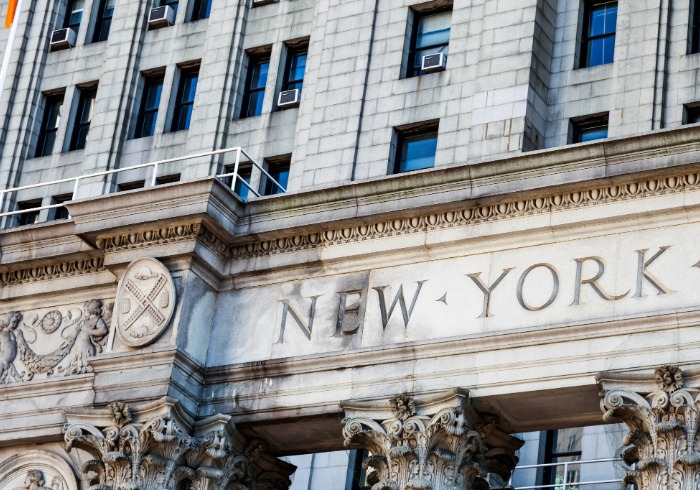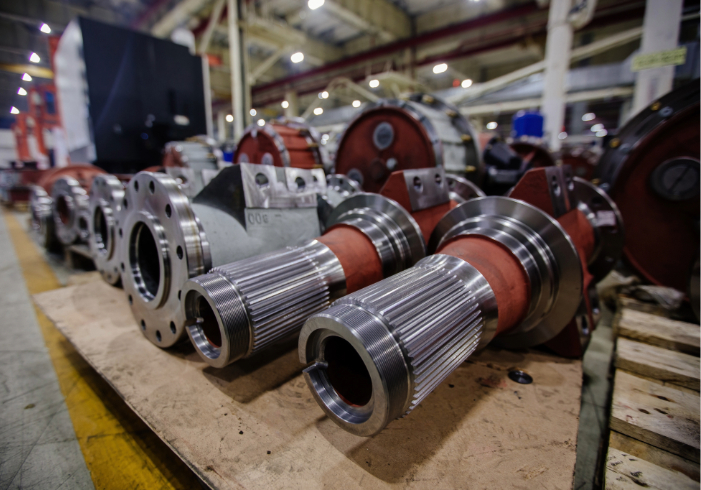Falling commodity prices have led to an increase in human rights abuses, including the use of child labour in global supply chains, particularly in Africa. Sanne Wass reports.
Human rights is no longer a concern for activists and NGOs alone. It is an issue that is fundamental to business. Facing reputational, legal and financial risks – perhaps combined with moral concern – the corporate world has, over the last few years, been taking more action to ensure their supply chains respect human rights.
The disclosure of supply chain due diligence, for one, has become a key business instrument for big international technology companies, who as a result have defied Donald Trump’s attempt to liberalise US legislation on conflict minerals.
Meanwhile, impact investment – namely investmentinto companies that have a positive social or environmental impact – is rising in popularity too.
But despite a growing awareness of human rights, research suggests that many firms are still underestimating the risk.
A recent study by the Economist Intelligence Unit (EIU), which surveyed business executives from companies around the world, found a “worrying degree of complacency on the part of business” when it comes to tackling supply chain issues on climate change, gender balance and human rights. For example, only 22% are addressing child labour concerns; yet only 2% thought their companies had irresponsible supply chains.
The findings are not insignificant considering that more than 150 million children are estimated by UNICEF to be engaged in child labour globally, with the highest levels in Africa.
It is an issue that is growing in severity. According to experts, the global commodity slump has driven a rise in social risks, including child labour. And to make matters worse, it is also forcing many companies to reduce their spend on preventing this activity.
Price drop presents new risks
Lower commodity prices may be good news for buyers, but for others, it has had devastating consequences. “The commodity downturn had a very stark negative impact on most of Africa, from 2012 onwards,” says Warren Beech, partner and head of mining at Hogan Lovells.
Many of the mining companies the law firm deals with in Africa have been forced to scale down, and a lot of projects have been put on hold. And the consequences are only becoming more visible over time, Beech explains: “The significant impact this year has been that, because of the situation the industry finds itself in, the number of fatalities has dramatically increased, so there seems to be a direct correlation between the commodity downturn and safety spend.”
Another disturbing outcome is the rise in illegal mining, and with that has come a proliferation of child labour, says Giles Hedley, a Johannesburg-based investor relations officer at Barak Fund Management. “The biggest risk is illegal mining. Children from six years old and up engage in these activities. Operations don’t meet safety thresholds, so death and injury are common. Proceeds from illicit trading in commodities are often used to fund rebel activity in places like northeast DR Congo,” he says, emphasising that Barak has no association with borrowers implicated in such activities.
The rise in child labour risks is not limited to hard commodities: a plummeting cocoa price, for example, has hit cocoa producing countries hard.
Côte d’Ivoire, the world’s largest cocoa producer, has suffered more than most. With the minimum farmgate price (which is fixed by government before harvest) set higher than what the global market would offer, buyers consequently backed out, leaving cocoa piling up at the country’s main port and farmers with no revenue.
Cocoa production in Côte d’Ivoire is mainly driven by smallholder farmers, who are highly dependent on cocoa as an income and thus particularly vulnerable to volatile prices. They are already far below the national poverty level, earning approximately €0.86 per day, according to a study by the French Development Agency (AFD) and Swiss chocolate producer Barry-Callebaut, released in February.
“With this decrease in cocoa prices it means the situation has deteriorated further,” says Maja Bovcon, a senior analyst with a West African focus at global risk consultancy Verisk Maplecroft. The effects, she explains, are especially seen in the growing use of child labour in cocoa fields. Lower incomes mean more dependency on a free workforce, but it also means less money for families to send their children to school, making them more likely to end up working on the farms.
“Already between 350,000 to 1 million children work on these farms in Côte d’Ivoire,” she says, adding that while many of them are family members, the numbers also include children being trafficked across the border from neighbouring countries.
Other players in the sector are also tracking the trend. In its annual report published in June (on the World Day Against Child Labour), the International Cocoa Initiative (ICI) warned that the current low world market price for cocoa is threatening to undermine the progress to reduce child labour in the cocoa sector and creating “an ever greater urgency to scale up measures” to address the problem.
Côte d’Ivoire is not alone, Bovcon explains, with countries like Ghana and Nigeria, also big cocoa producing countries, facing the same challenges.
Many of the affected nations already have extensive legislation aimed at putting an end to child labour and other human rights abuses. In Côte d’Ivoire, for example, Bovcon says children are required to carry a birth certificate when crossing the border. But the drop in economic performances has led to a weaker enforcement of the rules. Added to this, she says, comes the decline in the number of inspectors, making it difficult to monitor activities on the farms.
“This weak national law enforcement means that the enforcement into child labour will fall on the companies themselves, also with the help of NGOs,” she says.
Legal, reputational, financial risk
For businesses operating in these sectors, there is good reason to take heed of the cautions.
“Tackling modern slavery and related human rights abuses is now more than an ethical imperative advocated by human rights groups,” notes a report on human trafficking and the role of financial institutions, released earlier this year by the Royal United Services Institute think tank. “It is now a business imperative for the private sector and failure to manage them could negatively affect a company’s share, price, brand value and operational performance.”
One important concern for most companies is the reputational risk: consumer-facing companies in particular can be easily targeted by campaigns and consumer boycotts.
But failing to address human rights issues in your supply chain could also have legal repercussions. In 2011, the UN Human Rights Council endorsed the Guiding Principles for Business and Human Rights, a set of benchmark principles created to address adverse human rights impacts linked to business. While these are regarded as soft law, and not legally binding, they have created an expectation that businesses will respect the principles and have also led to the introduction of legal statutes on national levels, one of the most prominent being the 2015 UK Modern Slavery Act.
From a financing perspective, too, being associated with irresponsible supply chains comes with a risk of lenders and investors pulling their support.
“If we come across anything that we deem to be crossing over lines from a human rights perspective, we would certainly seize to work with that borrower,” says Hedley at Barak. “We have a reputation in the market that we need to preserve.”
He adds that investments into activities that have a positive social and environmental impact are surging. Barak manages an impact investment fund, which has received significant interest over the last year.
But despite the continued drive to maintain responsible supply chains, the corporate world doesn’t always devote enough resources and attention.
Even if a large majority agrees that corporate actions on human rights are important, 28% of respondents to the EIU’s survey believe that respecting human rights is a simple matter of complying with relevant laws. The survey also found that while the majority of firms have prioritised supply chain responsibility in the last five years, 30% have decreased their focus over the same period.
The study also concludes that firms are more likely to address working hour limits and living wages in their supply chains ahead of child labour – which may come down to the fact that child labour often happens far away from a company’s base and is insulated by multiple layers of intermediary firms, which makes it harder to detect.
What’s more, raw materials firms were the worst performing industrial group in terms of addressing child labour, a “disappointing” finding considering that some of the most prominent exposés of child labour have been related to mining, says the study.
One of the biggest barriers is the lack of resources, concludes another Economist Intelligence Unit report on today’s challenges for business in respecting human rights. The challenge, it says, is that investing in human rights policies is typically driven by long-term opportunities within brand and reputation management and stakeholder relations. These goals usually have an impact on the bottom line in the long run, but often lack a clear and immediate business case. This means that human rights policies and programmes are more vulnerable to cuts when resources are limited.
Louise Moore is a partner at Hogan Lovells in London, where she heads up the company’s international environment practice. She sees a similar trend amongst some companies, investors and financiers: lower revenues often lead to the demotion of human rights due diligence and procedure to a tick box exercise. Many firms, she explains, continue to have their fingers burnt for taking a ‘minimum compliance’ approach to tackling the issues. In fact, she has come across situations where the remedy has led to greater human rights issues and a whole raft of new problems, such as violence, because of a lack of understanding of the local communities.
“You can’t just go in there like a bull in a china shop and think it can be cured overnight, you really need to understand the local issues and look for long-term improvement,” she says. “Even when you have got a hard law violation, a hard law remedy is not necessarily going to be the best and most effective from a human rights perspective.”
Collaboration and technology
One company dealing with these issues in its every day operations is Olam Cocoa, part of the agribusiness conglomerate Olam Group.
The company’s commercial head of cocoa sustainability, Alistair Davis, recognises that the lower farm gate price in Côte d’Ivoire has put huge pressure on local communities, and labour in particular, and exacerbated already existing problems in cocoa supply chains.
For Olam, addressing these problems is about much more than due diligence and minimum regulatory compliance. It takes this approach because it makes sense from a sustainable commercial perspective, Davis says.
“It’s about understanding each community,” he says. “Are there schools nearby? Is it a better equipped community? If we understand that, we can action a more tangible impact.”
Building a school in an area that doesn’t have one can be an important first step to get the children off the farms. Financing, too, Davis says, is a key tool to help farmers weather the worst consequences of the price downturn. Last year alone, Olam provided a total of US$110mn in short-term financing to cocoa farmers. These loans are interest-free and offered to farmers all year round, including in difficult times when other financiers may not be willing to take on the risk.
Davis also emphasises the importance of working with other parties, such as labour associations, as well as having the right infrastructure in place to deal with any issues the company may come across in its due diligence. One way in which Olam does this is by setting up Child Labour Monitoring and Remediation Systems, involving committees led by the local communities, which decide on the appropriate strategies to tackle a specific problem. “The end-state is not for multinational firms to be the police – this has to be organic within each community,” he says.
One crucial tool to help the company take this holistic approach is its Olam Farmer Information System (OFIS), which Davis says has been “a revolutionary tech innovation for collecting and analysing smallholder farm data, which in previous years wasn’t possible”. The system is a mapping tool that aggregates data conducted from the farms via surveys, showing anything from the age and gender of the workers to the nearest school or hospital.
This traceability allows Olam to better understand the risk landscape and it is a key differentiator for the company in addressing child labour and other social risks in its supply chain. So far 100,000 farmers in 21 countries have been registered to the system, and Olam is aiming for 500,000 by 2020.
“It builds a great risk appreciation of the area. Through that we have been able to shape a lot of needs assessments and investments,” Davis says.
Great importance lies with the acknowledgement that the risks exist in the first place – a concept that the EIU’s survey conveys too.
“A failure to acknowledge the risks is not a positive result,” the report reads. “Given that many key issues are being overlooked in supply chains, it would have been a more positive result if a higher proportion of executives had declared that their firms did not yet have responsible supply chains.”
The more an executive understands the company’s supply chain risks, it says, the more negatively they are likely to feel about their firm’s performance – which may prompt action.






